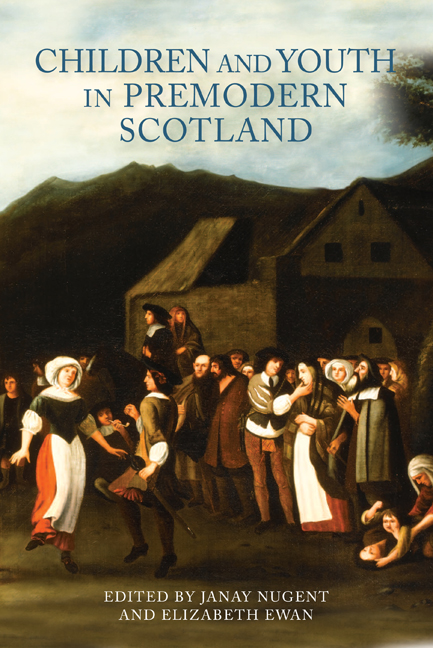Book contents
- Frontmatter
- Dedication
- Contents
- List of Illustrations
- Notes on Contributors
- Acknowledgments
- Abbreviations and Conventions
- Introduction: Adding Age and Generation as a Category of Historical Analysis
- Part I Experiences of Childhood and Youth
- Part II Representations of the Young
- Part III Constructing the Next Generation
- Envoi In Their Own Words: A Mother to Her Son
- Guide to Further Reading
- Index
- St Andrew Studies in Scottish History
8 - Natural Affection, Children, and Family Inheritance Practices in the Long Eighteenth Century
Published online by Cambridge University Press: 11 May 2021
- Frontmatter
- Dedication
- Contents
- List of Illustrations
- Notes on Contributors
- Acknowledgments
- Abbreviations and Conventions
- Introduction: Adding Age and Generation as a Category of Historical Analysis
- Part I Experiences of Childhood and Youth
- Part II Representations of the Young
- Part III Constructing the Next Generation
- Envoi In Their Own Words: A Mother to Her Son
- Guide to Further Reading
- Index
- St Andrew Studies in Scottish History
Summary
It has pleased God to bless me with Alexander, James, George, Euphan, Mary, Grace and Jean Chancelor, my children, procreat betwixt me and Mrs Jean Agneu, my spouse, daughter to Sir James Agneu of Lochnaw, Barronet, for whom, my natural love and affection, I am bound to provide (John Chancellor of Shiehill, 14 December 1720).
The broad legal framework for Scottish inheritance practice had been in place for several centuries by the time John Chancellor wrote this bond of provision for his children in 1720. Within it, following both common custom amongst much of the Scottish landed classes and inheritance law, he arranged for part of his property to be placed in the hands of trustees to be sold for the benefit of his children. From the proceeds, he allocated 10,000 merks to each of his younger children and the remainder, if any, to his eldest son Alexander, who also inherited the family estate. As he noted within his bond, his choice to provide for his children was motivated by duty – he was ‘bound to provide’ – but a duty that originated in his ‘natural love and affection’ for his children.
The duty of love that parents owed children was a recurring motif across the early modern period, expounded as a ‘natural’ duty in sermons and conduct books, and placed alongside expectations that parents provide for, educate, and protect them. During the seventeenth century, the growing popularity of natural law theories amongst lawyers and philosophers across Europe reinforced the importance of natural affection within the family. Most argued that this emotional bond between parent and child was a biological or innate response designed to ensure the continuation of the population. As John Tillotson, a seventeenth-century archbishop of Canterbury whose works were reprinted in Scotland across the eighteenth century, noted with regard to the ‘affection and tenderness’ due to children: ‘there cannot be a greater reproach to Creatures that are endued with Reason, than to neglect a duty to which Nature directs even Brute Creatures by a blind and unthinking Instinct’.
Despite Tillotson's confidence, the origins of this instinct and the implications for the emotional relationship between parent and children were topics of considerable debate.
- Type
- Chapter
- Information
- Children and Youth in Premodern Scotland , pp. 136 - 152Publisher: Boydell & BrewerPrint publication year: 2015
- 1
- Cited by



